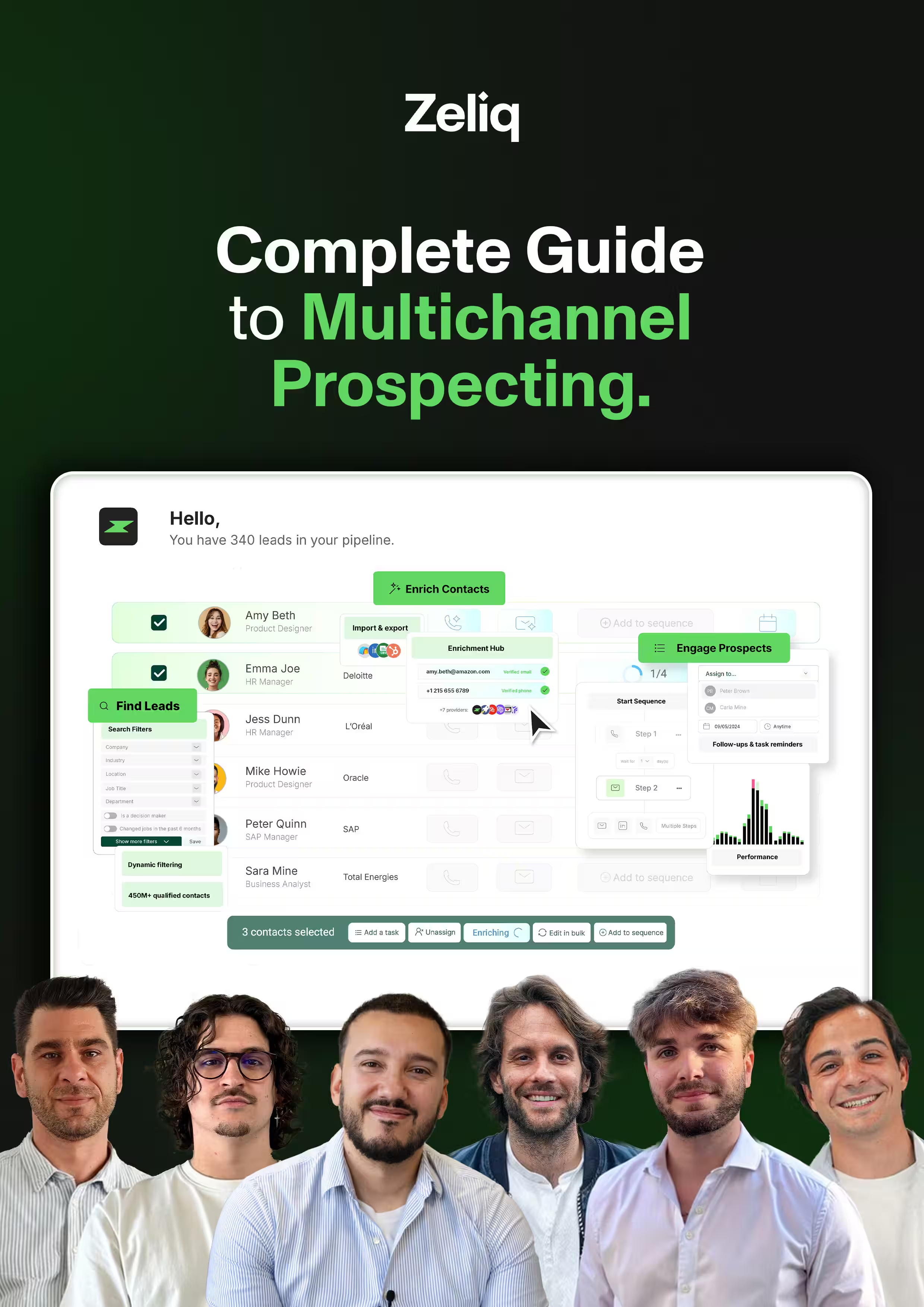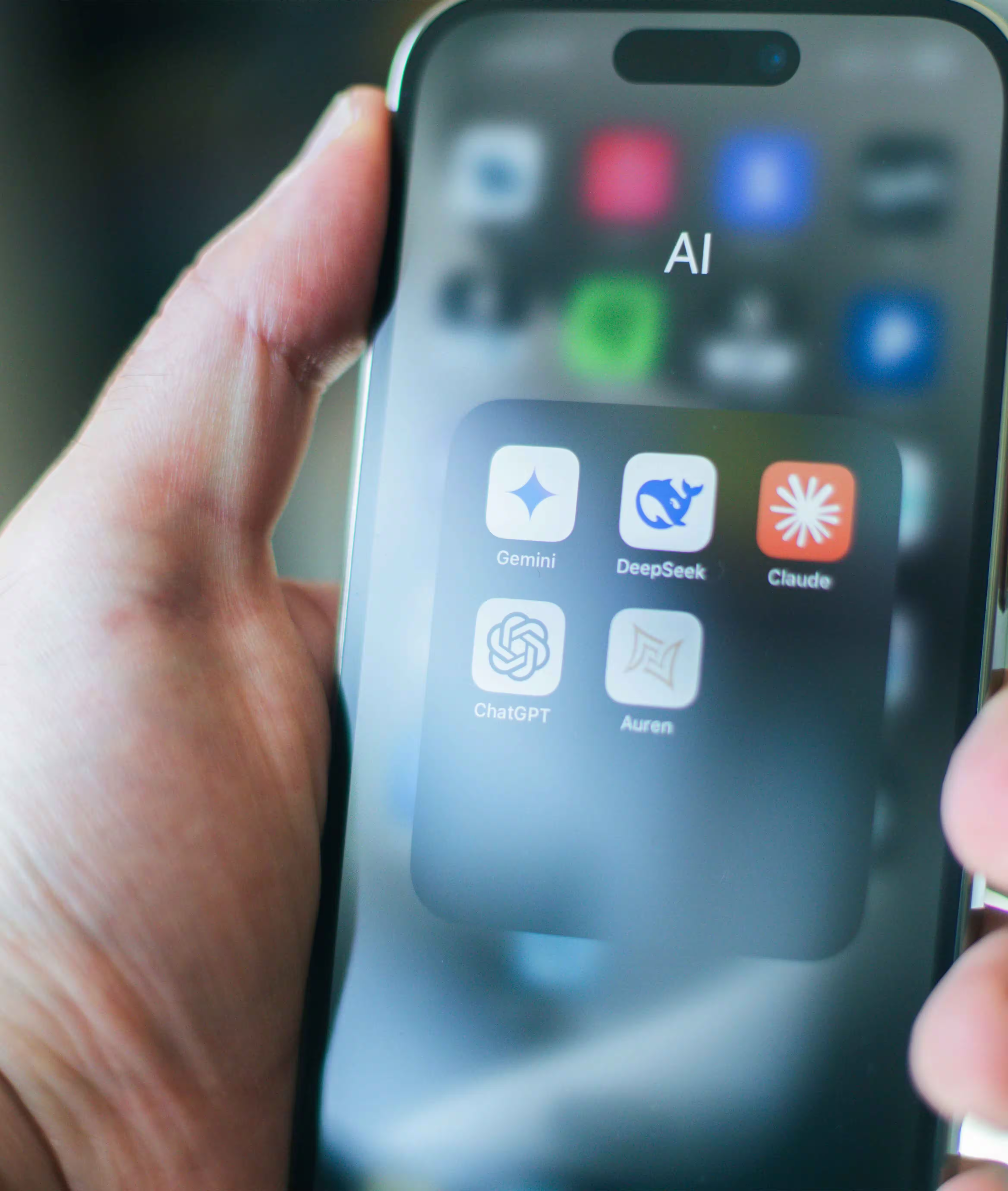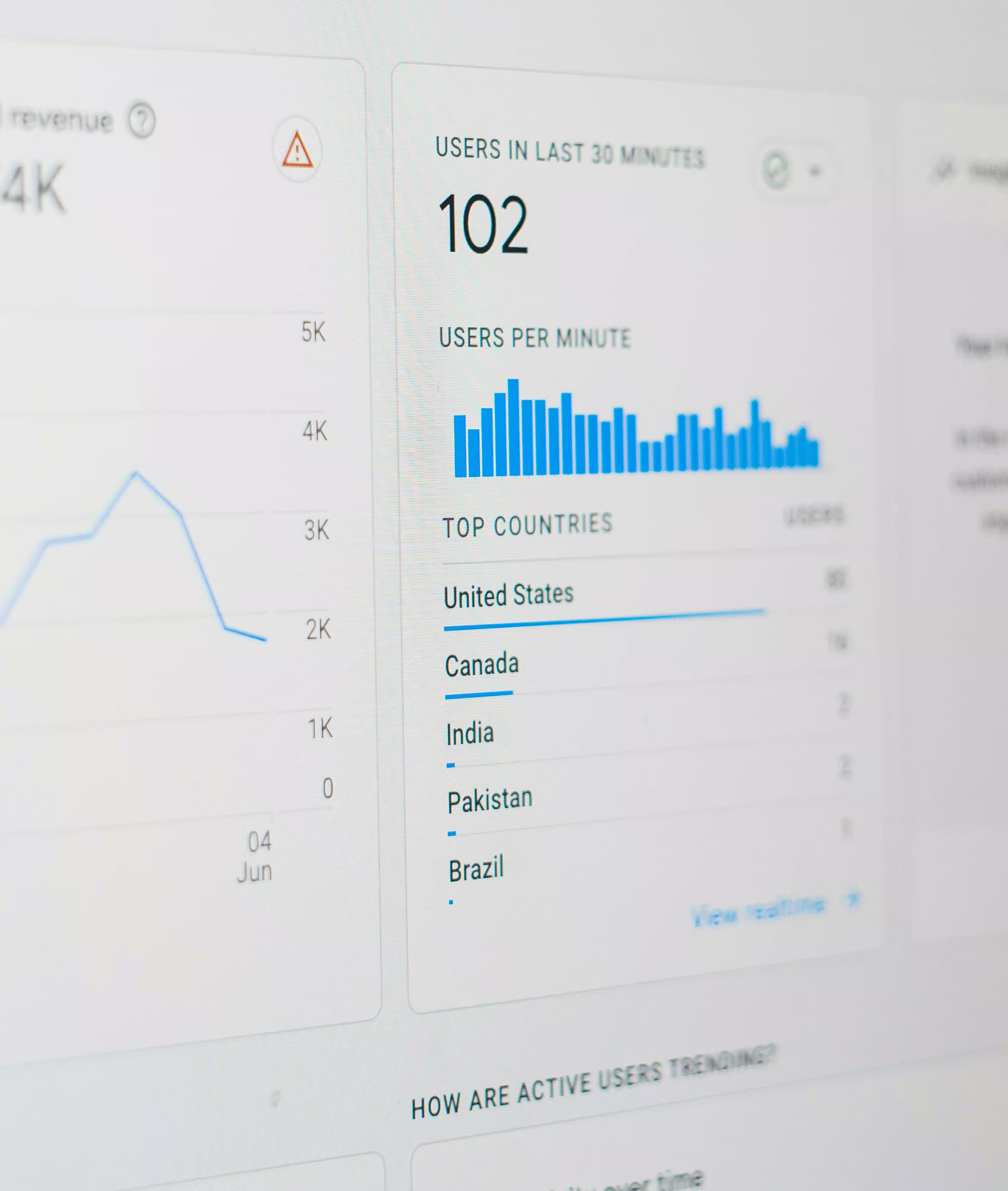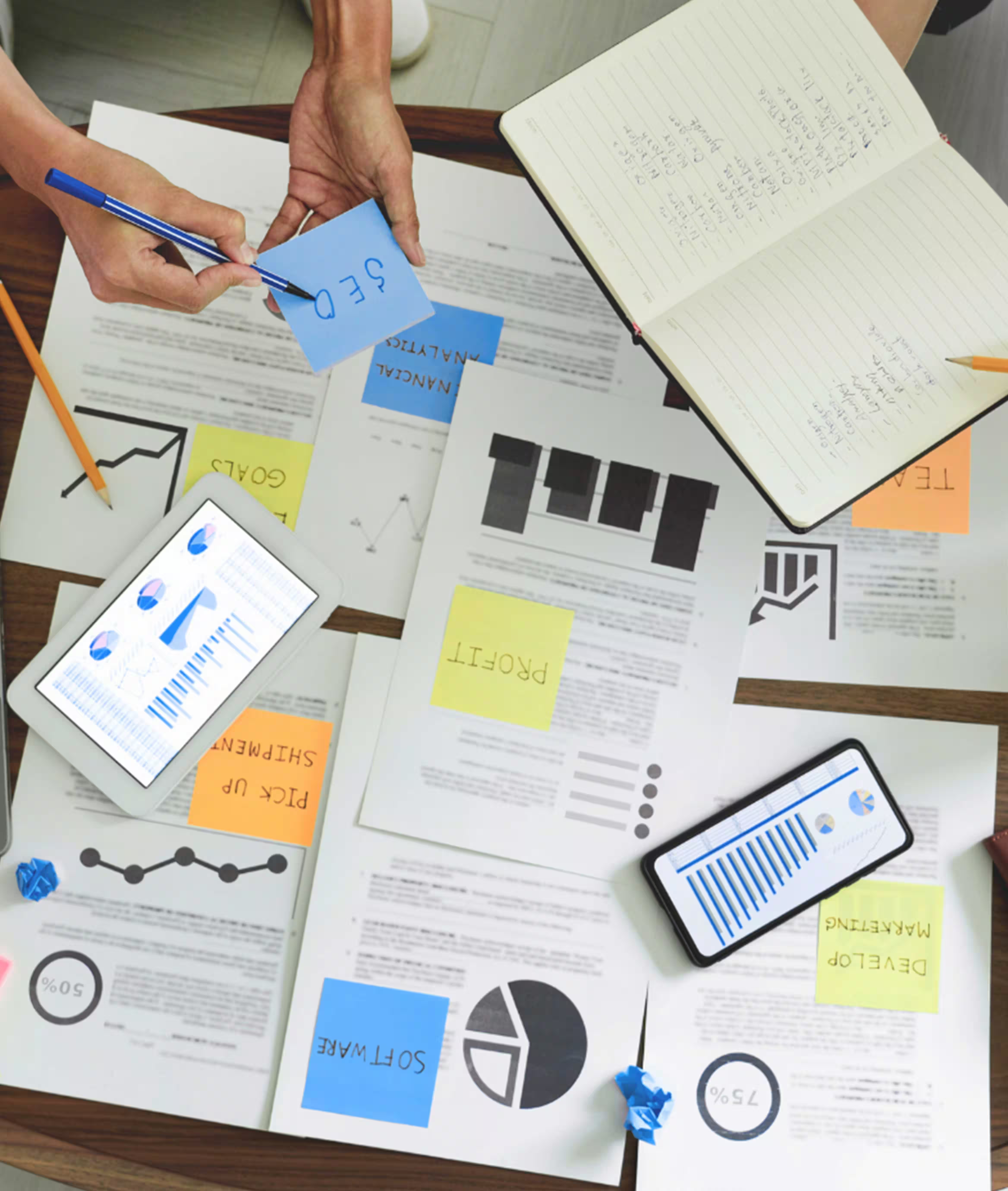A well-structured B2B sales process is no longer a luxury — it’s a competitive necessity.
Today, buyers’ expectations evolve fast, and relying on improvisation no longer works. To get results that actually matter, your sales team needs a defined process that turns potential leads into closed deals.
If you want the buyer to make a decision, each of the following steps must serve a clear purpose:
- Prospecting
- Lead generation
- Qualifying leads
- Solution presentation
- Closing the deal
Without a defined process, sales reps waste time in long cycles and chase the wrong opportunities. They eventually lose control of the customer journey.
A clear structure also makes it easier to increase sales productivity by removing busywork and helping reps focus on the activities that actually move deals forward. If you want to go deeper on the very first step, this ultimate guide to sales prospecting breaks down how to consistently fill the top of your funnel with the right opportunities.
A successful strategy aligns sales and marketing and enables continuous improvement — especially when powered by the right tools.
In this guide, we’ll break down every step, compare it to the sales funnel and cycle, and explore how platforms like ZELIQ help you close more deals, faster.
What Is a Sales Process?
A B2B sales process is a series of repeatable steps your sales team to turn potential buyers into paying customers. It’s the engine behind every successful deal — from first contact to closed contract.
It gives structure to your daily operations. It outlines how to approach prospecting, qualify leads, and guide buyers through each stage of the journey.
But let’s not confuse terms:
- Sales funnel: represents where the buyer stands — top, middle, or bottom of the journey.
- Sales process: what your team does at each stage to move the buyer forward.
- Sales cycle: focuses on time — how long it takes to close a deal.
Without a clear methodology, even top reps struggle. Leads get lost, forecasting fails, and scaling becomes guesswork.
A strong process aligns sales and marketing, improves handoffs, and creates a foundation for consistent, repeatable success.
Why You Need a B2B Sales Process
In B2B sales, clarity wins. A defined process separates high-performing teams from reactive ones.
It transforms individual hustle into a scalable system.
Key benefits:
- A predictable funnel —know exactly where every deal stands
- Shorter cycles — fewer delays, faster decisions
- Accurate forecasting — better planning and alignment
- Better rep performance — thanks to structure and expectations
- Greater visibility — track every stage of the journey
It also strengthens collaboration: when sales and marketing use the same roadmap, handoffs improve, and qualified leads move faster.
In complex deals with multiple stakeholders, guesswork is costly. A clear process brings structure, speed, and results.
What Does a Typical B2B Sales Process Look Like?
Most businesses — from startups to enterprise — follow similar steps:
- Lead Generation: Attract potential buyers through outreach, referrals, inbound traffic, or social selling.
- Lead Qualification: Filter for real intent and authority. Focus where it counts.
- Discovery / Needs Assessment: Ask smart questions to uncover goals, pain points, and urgency.
- Solution Presentation: Connect your solution to their challenges — clearly and concisely.
- Objection Handling: Welcome resistance. Use it to deepen trust and address concerns.
- Proposal & Negotiation: Align on price, timeline, and terms. Prepare for flexibility.
- Closing the Deal: Secure the agreement — but treat it as the start, not the end.
- Post-Sale Success & Retention: Ensure onboarding, support, and value delivery for long-term loyalty.
%3Aformat(webp).webp)
Throughout every stage, data, automation, and smart tools help you move faster, track better, and close with confidence.
Before these steps, a structured prospecting plan keeps your team aligned on who to target, which channels to use, and how often to follow up. A consistent framework for qualifying a prospect helps reps focus on deals with real potential and avoid bloated, low-quality pipelines.
What Is a B2B Sales Funnel?
The sales funnel maps the buyer’s journey — from awareness to decision.
- Top of Funnel: Just browsing. Maybe clicked a blog or LinkedIn ad. They're exploring.
- Example: For HR software, a “Top 5 onboarding trends” guide can grab attention.
- Middle of Funnel: Researching. Comparing vendors, checking pricing, reading case studies.
- This is your moment to share real value, not just pitch.
- Bottom of Funnel: They’ve seen the proposal, spoken to your team — now they need a push.
- Fast responses, clear terms, and seamless experience make the difference.
%3Aformat(webp).webp)
- ZELIQ helps you track movement across these stages, identify slowdowns, and adjust your messaging — all in real time.
How Is B2B Sales Changing?
The B2B landscape has shifted:
- Digital-first: Buyers do their research before they talk to sales
- Multi-threaded: More stakeholders, more complexity
- Content-driven: Value must come before the call
Reps must evolve: less pitch, more guidance. Less product, more problem-solving.
Top sellers now rely on:
- Intent data to time outreach
- Targeted media to create relevance
- Sales enablement tools to respond with confidence
ZELIQ unifies these workflows — keeping your team in sync with every decision-maker, in real time.
Example: Selling to a Multi-Stakeholder Buying Group
Imagine you're selling a project management tool.
- The Head of Product wants integrations
- The CFO wants clear pricing
- The CEO wants team productivity
They're not in the same room — and they don’t read the same content. Winning means crafting tailored touchpoints for each, not sending the same email to everyone.
Key B2B Sales Techniques & Tips
There’s no one-size-fits-all approach. But here are proven methods:
- Consultative selling: Uncover the problem, then offer a tailored solution
- Challenger selling: Lead with insight, challenge the status quo
- Account-Based Selling (ABS): Highly personalized, stakeholder-specific outreach
- Social selling: Engage on LinkedIn to build visibility and trust
- Cold calling: Still works — when it’s researched, respectful, and delivers quick value
In reality, great deals blend all these techniques across email, calls, social, and meetings.
If calls are part of your motion, using a proven cold call script helps reps stay confident, handle objections, and guide conversations toward clear next steps. Refining your cold calling techniques ensures those conversations feel relevant, respectful, and timely instead of intrusive.
Each of these techniques works best when you know exactly who you’re trying to reach and how you’ll turn a prospect into a customer, which is why having a clear prospect client strategy is so important.
ZELIQ lets you orchestrate every touchpoint from one platform — with the right timing, tone, and tools.
%3Aformat(webp).webp)
Bonus tips:
- Research each prospect’s company before first contact
- Be transparent with pricing to build trust early
- Ask open-ended questions to uncover real priorities
- Use micro-case studies to boost relevance
- Keep follow-ups short, timed, and valuable
How to Make B2B Sales More Efficient
Efficiency comes from systems.
- CRM: central hub for tracking, prepping, and aligning
- Sales enablement: Playbooks, objection handlers, templates
- Lead scoring & enrichment: Prioritize the right targets, with full context
- Automation: Follow-ups, reminders, handoffs — handled automatically
Those systems exist to sharpen sales productivity, so each hour spent selling generates more qualified conversations and more revenue.
ZELIQ connects all of it in one lean interface — no switching tools, no scattered data.
Your team focuses on impact. The platform handles the rest.
How to Measure Sales Performance
You can’t improve what you don’t track.
Key KPIs:
- Conversion rate — how well leads move stage-to-stage
- Sales cycle length — how long from first touch to close
- Win rate — % of proposals that become deals
- Average deal size — tracks revenue trends
- Pipeline velocity — how fast deals progress
- Rep productivity — activities vs outcomes
ZELIQ gives you real-time dashboards to identify patterns, coach better, and drive performance — no blind spots.
%3Aformat(webp).webp)
Advanced: B2B Sales Cycle & Roadmap
The sales cycle runs from first contact to close — but it’s rarely linear.
In SaaS, it may take weeks. In enterprise, months. Layers of approvals, budgets, and risk slow things down.
That's why you need a flexible roadmap, built from:
- Buyer feedback
- Deal patterns
- Engagement data
Map the seven modern stages:
- Awareness
- Interest
- Evaluation
- Engagement
- Proposal
- Decision
- Onboarding
Track where friction happens — then refine. The roadmap lets you learn and improve, deal after deal.
%3Aformat(webp).webp)
Common B2B Sales Challenges — And How to Overcome Them
Biggest blockers?
- Multiple stakeholders: different goals, different agendas
- Disconnected data: wrong contact info, outdated signals
- Message mismatch: pitch doesn’t align with the buyer’s priorities
- Weak follow-up: inconsistent, untimely, impersonal
ZELIQ solves this with:
- Real-time data enrichment
- Funnel tracking
- Outreach automation
You focus on real conversations. The system keeps momentum.
%3Aformat(webp).webp)
Final Take: Structure Wins
Top sales teams don’t just “work harder” — they work smarter. They rely on:
- A clear process
- The right tools
- Visibility at every stage
- A system that scales with them
ZELIQ gives you the edge — one unified platform to align your reps, engage the right contacts, and close with confidence.
👉 Try ZELIQ today and run your sales process the way it should be.
Enter the future of lead gen
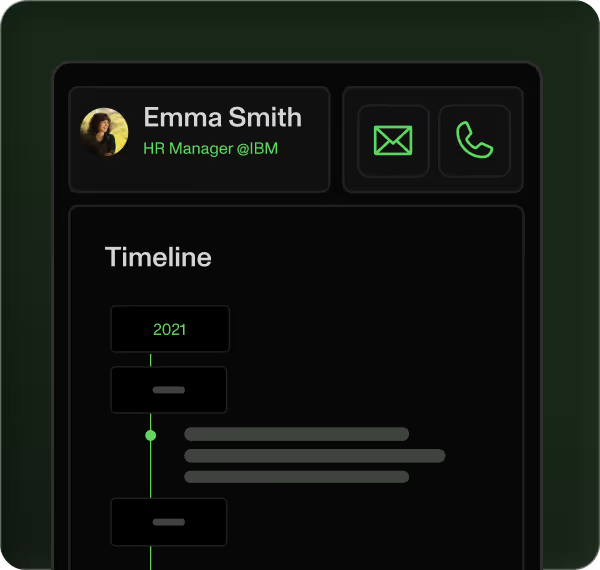
Table of contents
Placeholder Title
Table of contents
Placeholder Title
Placeholder Title
Download our full case study ebook!
